In collaboration with our partners, we explore the potential of mobile communications (4G and 5G) for industrial applications through constant testing for various use cases along the entire value chain.
To test mobile communications for its potential to increase the productive benefit for industrial applications.
Following a holistic approach, we consider interesting use cases in production as well as logistics and along the entire value chain. We focus on connecting existing solutions to mobile network and test them afterwards. At the same time, we intend to develop new solutions that generate added value by combining different applications or additional, interoperable use of data already collected. For the upcoming 5G mobile communications standard, network slicing and edge computing are particularly important to consider in addition to the already established, current 4G standard. Both the “5G Application Lab” test bed in the Aachen demo factory, which we operate jointly with Ericsson, and the upcoming Telekom campus network provide us with the optimal infrastructure for this on site.
In close collaboration with our partners, we test and develop the adaptive value chain of an automotive supplier using and combining various technological solutions.
Through this transparent as well as adaptive value network – from the supplier, various production and transport stations to the customer – is seen as a technology test bed in which various solutions for data acquisition, evaluation and feedback are linked in real time.
In the long-term, we attempt to establish an interoperable value chain that includes standardized interfaces. This way, individual adaptation can be matched with individual application and we are able to roll out live systems at the push of a button.
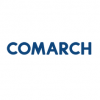
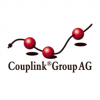
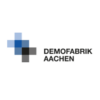

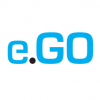
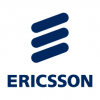


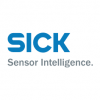
Demonstrating of applicability and utility of blockchain in production logistics
Events of individual logistics participants along an illustrated value chain were stored in a blockchain and transmitted to various actors in a manipulation-proof manner.
As such, the resulting cross-company database is not dependent on intermediaries, contains all events and provides verifiable traceability across the supply chain.
Providing targeted asset information, improving process reliability and traceability of operating processes
Together with the project consortium we have developed an operative industry pilot which demonstrates exactly how relevant information can be provided in line meeting industrial application requirements. Using data matrix codes assets and required resources can be clearly identified and relevant information such as technical data, contact information and instructions can be displayed on a mobile device. Apart from this, the identification technology is used to verify the equipment required for a process in order to prevent confusion with serious consequences. On the basis of a specified role concept, the application ensures that the employee is authorized to carry out the respective maintenance process. By documenting these processes on an internet platform, all interventions can be traced back and analyzed.
Process transparency and sequence optimization of internal and cross-location transport of goods and services in field trials.
Technology and system solutions were combined and interconnected for automated data collection. This way, process transparency could be increased and the sequence of the company-internal transport of goods could be optimized.
As a final step, we were able to prove these results – and thus their applicability for processes across locations and in real time – with a prototype in the field test.
Demonstrating virtual support for the assembly line.